Kulturdirektoratet
Meta.Morf 2024 – [up]Loaded Bodies / Kjøpmannsgata Ung Kunst / Conference April 19 /
Norsk
ART & CONTROL – Artistic Freedom vs Regulating Tech /
Panel debate
Panel participants: Birgitte Aga / Sarah Cook / Andre Holzapfel / Anders Hofseth
Presentation from Arts and Culture Norway: Magnus Aspli
Moderator: Stahl Stenslie
Arts and Culture Norway (Kulturdirektoratet) invites you to a panel discussion on the balance between artistic freedom and the regulation of technology.
The political debate surrounding artificial intelligence, particularly generative artificial intelligence, often revolves around how this groundbreaking technology should be regulated to safeguard democratic values. However, overregulation of the technology may come at the expense of freedom of expression and artistic freedom, whether one considers the technology as a tool and/or as an artistic medium. These values are essential for a well-functioning democracy and for maintaining a free and innovative art scene that reflects and challenges society.
This event aims to explore the balance between the need for regulation and the preservation of the free and unbridled expression of art. Where do we draw the line between necessary regulation for the greater good of society and the preservation of artistic freedom? How can we ensure that regulations do not hinder art, pointing a critical lens on technology and society?
The goal is to shed light on the complex relationships between art, technology, and society. We seek to promote a constructive dialogue among stakeholders, artists, technologists, and representatives from the public sector. Through this dialogue, we hope to find paths to a common understanding and forward-thinking approaches that both protect society and foster artistic innovation.
Additionally, we will explore how artificial intelligence can be used to enhance the dissemination of art. Could seamless translation in multiple languages via artificial intelligence, for example, contribute to making art more accessible and understandable to a broader audience? What about discussing art with lifelike replicas of deceased artists? These are just a few of the exciting potentials that artificial intelligence offers for art dissemination, and we will explore more of these possibilities during the event.
During the event, Arts and Culture Norway (Kulturdirektoratet) will also present the launch of their initiative on innovation. An initiative delving into the challenges and opportunities that emerging technology can offer the cultural sector. In collaboration with stakeholders in the field, the aim is to enhance the cultural sector’s inherent innovative capacity to create a society enriched by art and culture.
KUNST og KONTROLL – Kunstnerisk frihet vs teknologregulering / Paneldebatt
Den politiske diskusjonen om kunstig intelligens, og spesielt generativ kunstig intelligens, er ofte sentrert rundt hvordan denne banebrytende teknologien bør reguleres for å beskytte demokratiske verdier. Men overregulering av teknologien kan gå på bekostning av ytringsfrihet og kunstnerisk frihet, både om en vurderer teknologien som verktøy og/eller som kunstnerisk medium. Disse verdiene er essensielle for et velfungerende demokrati, og for å ivareta et fritt og nyskapende kunstfelt som reflekterer og utfordrer samfunnet.
Dette arrangementet ønsker å utforske balansen mellom behovet for regulering og ivaretakelsen av kunstens frie og utilslørte uttrykk. Hvor trekker vi grensen mellom nødvendig regulering for samfunnets beste og bevaring av kunstnerisk frihet? Hvordan kan vi sikre at reguleringer ikke blir til hinder for teknologi- og samfunnskritisk kunst?
Målet er å belyse de komplekse forholdene mellom kunst, teknologi og samfunn. Vi ønsker å fremme en konstruktiv dialog mellom samfunnsaktører, kunstnere, teknologer og representanter fra det offentlige apparatet. Gjennom denne dialogen håper vi å finne veier til en felles forståelse og fremtidsrettede tilnærminger som både beskytter samfunnet og fremmer kunstnerisk innovasjon.
I tillegg vil vi utforske hvordan kunstig intelligens kan benyttes til å berike formidlingen av kunst. Kunne for eksempel sømløs oversettelse på flere språk via kunstig intelligens bidra til å gjøre kunsten mer tilgjengelig og forståelig for et bredere publikum? Hva med å diskutere kunsten med livaktige replikaer av avdøde kunstnere? Dette er bare noen av mange spennende potensialer som kunstig intelligens byr på for kunstformidlingen, og vi vil utforske flere av disse mulighetene under arrangementet.
I løpet av arrangementet presenterer også Kulturdirektoratet sin satsing på innovasjon. En satsing som vil utforske utfordringene og mulighetene som ny teknologi kan gi kultursektoren. Arbeidet vil skje i samarbeid med aktører i feltet, med mål om styrke den iboende innovasjonskraften i kultursektoren for å skape et samfunn enda rikere på kunst og kultur.
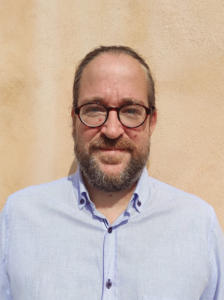 Andre Holzapfel (DE/SE) is Associate Professor of Media Technology with specialization in Sound and Music Computing at KTH Royal Institute of Technology in Stockholm, Sweden. He holds one PhD degree in Computer Science, and a second PhD degree in Ethnomusicology. His research focuses on the intersection between music and technology, for instance by using computational analyses in studies of music corpora, or by investigating the development of technology for creative purposes. He has contributed to the computational analysis of rhythm in the field of Music Information Retrieval, and has focused his ethnographic work on music and dance in Crete, Greece. His multidisciplinary background helps him to investigate the potential of combining quantitative, computational methods with qualitative, ethnographic methods in music research, an investigation that he likes to refer to as Computational Ethnomusicology. In the recent years, he has extended his research to the analysis of human movement using motion capture analysis, and the investigation of ethical, legal, and sustainability implications of artificial intelligence in creative contexts. Despite having a degree in Computer Science he does not like coding. He is a passionate player of the Cretan lute, and used to perform Greek Rembetiko music.
Andre Holzapfel (DE/SE) is Associate Professor of Media Technology with specialization in Sound and Music Computing at KTH Royal Institute of Technology in Stockholm, Sweden. He holds one PhD degree in Computer Science, and a second PhD degree in Ethnomusicology. His research focuses on the intersection between music and technology, for instance by using computational analyses in studies of music corpora, or by investigating the development of technology for creative purposes. He has contributed to the computational analysis of rhythm in the field of Music Information Retrieval, and has focused his ethnographic work on music and dance in Crete, Greece. His multidisciplinary background helps him to investigate the potential of combining quantitative, computational methods with qualitative, ethnographic methods in music research, an investigation that he likes to refer to as Computational Ethnomusicology. In the recent years, he has extended his research to the analysis of human movement using motion capture analysis, and the investigation of ethical, legal, and sustainability implications of artificial intelligence in creative contexts. Despite having a degree in Computer Science he does not like coding. He is a passionate player of the Cretan lute, and used to perform Greek Rembetiko music.
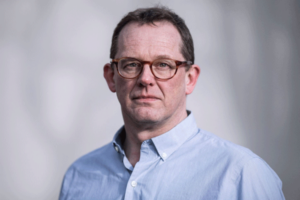 Anders Hofseth (NO) is a commenter and strategic adviser at NRKbeta, a think tank at the Norwegian public service broadcaster NRK. His main fields are journalism, media, and democracy.
Anders Hofseth (NO) is a commenter and strategic adviser at NRKbeta, a think tank at the Norwegian public service broadcaster NRK. His main fields are journalism, media, and democracy.
NRKbeta’s role is trying to understand change in the intersection between technology, media, and society, and to contextualise these changes for the NRK. The purpose is to make the organisation better fit for surviving change; enabling it to go on solving its public service mission through changing times. NRKbeta is frequently sharing insight outside the NRK as well, both through publishing and public speaking.
Anders has been a much used public speaker the last 10 years, both inside and outside the NRK, on topics such as: The possible impacts of AI, technology trends, the role of media in society, and propaganda and influence operations. He is driven by a general curiosity about what makes society tick, and is fascinated by trends and change.
Outside working hours, he’s writing music and playing guitar in a commercially rather unsuccessful band – which suits him fine. This academic year he’s also studying Political Science on the side.
His background is in film & TV production, creative writing, content strategy, and journalism. He is a Journalist Fellow from The Reuters Institute for the Study of Journalism at the University of Oxford.
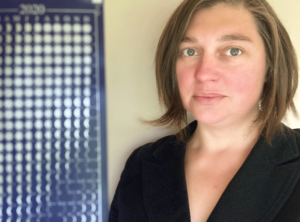 Sarah Cook (UK) is a curator, writer and researcher based in Scotland. She is Professor of Museum Studies in Information Studies at the University of Glasgow. From 2023 she is a guest professor in Art and AI with UmArts at University of Umeå as part of the WASP-HS programme.
Sarah Cook (UK) is a curator, writer and researcher based in Scotland. She is Professor of Museum Studies in Information Studies at the University of Glasgow. From 2023 she is a guest professor in Art and AI with UmArts at University of Umeå as part of the WASP-HS programme.
She is editor of 24/7: A Wake-up Call For Our Non-stop World (Somerset House, 2019) and INFORMATION (Documents of Contemporary Art, Whitechapel and MIT Press, 2016) and co-author (with Beryl Graham) of Rethinking Curating: Art After New Media (MIT Press, 2010; Chinese edition 2016).
Sarah has curated and co-curated over 50 international exhibitions of contemporary art, new media art and digital art for museums, galleries and festivals including Somerset House, BALTIC, Eyebeam, V2_, The Banff Centre, AV Festival, AND Festival, Transitio Festival, Edith Russ Haus, Govett-Brewster Art Gallery and for online platforms including Xcult, Add-art, SAW Video, and Bielefelder Kunstverein. From 2013 to 2020 Sarah was one of the curators behind Scotland’s only digital arts festival NEoN Digital Arts and was founder/curator of LifeSpace Science Art Research Gallery in the School of Life Sciences, University of Dundee (both as part of her role as Dundee Fellow at Duncan of Jordanstone College of Art & Design, 2013-2018). At LifeSpace she curated 16 exhibitions including newly commissioned work from artists Mat Fleming, Heather Dewey Hagborg and Philip Andrew Lewis, Andy Lomas, Daksha Patel, the Center for Postnatural History, Helen and Kate Storey, Mary Tsang, Thomson & Craighead and others.
In 2021-2022 Sarah was a senior academic research fellow at TATE as part of the Mellon-funded project Reshaping the Collectible: When Artworks Live in the Museum.
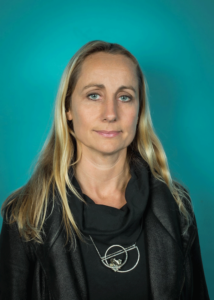 Birgitte Aga (NO) is an activist, creative technologist, and researcher with a Ph.D. in the artistic and ethical application of conversational AI. As part of her research, Birgitte creates and fosters communities that harness AI-driven technologies for protest and play. Her recent project, ‘Women Reclaiming AI,’ is a feminist AI voice assistant developed in collaboration with Coral Manton, and a growing community of (self-identifying) women. Birgitte is currently the Head of Innovation & Research at MUNCH in Oslo.
Birgitte Aga (NO) is an activist, creative technologist, and researcher with a Ph.D. in the artistic and ethical application of conversational AI. As part of her research, Birgitte creates and fosters communities that harness AI-driven technologies for protest and play. Her recent project, ‘Women Reclaiming AI,’ is a feminist AI voice assistant developed in collaboration with Coral Manton, and a growing community of (self-identifying) women. Birgitte is currently the Head of Innovation & Research at MUNCH in Oslo.
munchmuseet.no | womenreclaimingai.com
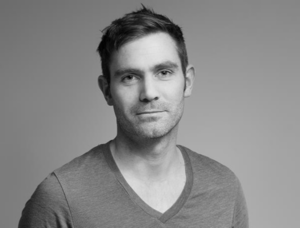 Magnus Aspli [NO] is a senior advisor, and leads the initiative on innovation and new technology at Arts and Culture Norway (Kulturdirektoratet), in the artist economy and innovation department, which is located in Trondheim.
Magnus Aspli [NO] is a senior advisor, and leads the initiative on innovation and new technology at Arts and Culture Norway (Kulturdirektoratet), in the artist economy and innovation department, which is located in Trondheim.
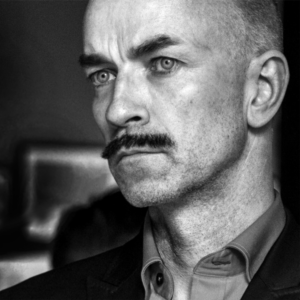 Ståle Stenslie (NO) works as an artist, curator and researcher specializing in experimental media art and interaction experiences. His aesthetic focus is on art and artistic expressions that challenge ordinary ways of perceiving the world. Through his practice he asks the questions we tend to avoid – or where the answers lie in the shadows of existence. Keywords of his practice are somaesthetics, unstable media, transgression and numinousness. The technological focus in his works is on the art of the recently possible – such as i) panhaptic communication on Smartphones, ii) somatic and immersive soundspaces, and iii) design of functional and lethal artguns, 3D printed in low-cost plastic material.
Ståle Stenslie (NO) works as an artist, curator and researcher specializing in experimental media art and interaction experiences. His aesthetic focus is on art and artistic expressions that challenge ordinary ways of perceiving the world. Through his practice he asks the questions we tend to avoid – or where the answers lie in the shadows of existence. Keywords of his practice are somaesthetics, unstable media, transgression and numinousness. The technological focus in his works is on the art of the recently possible – such as i) panhaptic communication on Smartphones, ii) somatic and immersive soundspaces, and iii) design of functional and lethal artguns, 3D printed in low-cost plastic material.
He has a PhD on Touch and Technologies from The School of Architecture and Design, Oslo, Norway. Currently he heads the R&D department at Arts for Young Audiences Norway.
He has been exhibiting and lecturing at major international events (ISEA, DEAF, Ars Electronica, SIGGRAPH). He represented Norway at the 5th biennial in Istanbul, Turkey, co-organized 6cyberconf and won the Grand Prize of the Norwegian Council for Cultural Affairs. He has moderated various symposiums like Ars Electronica (Next Sex), ArcArt and Oslo Lux (2013).